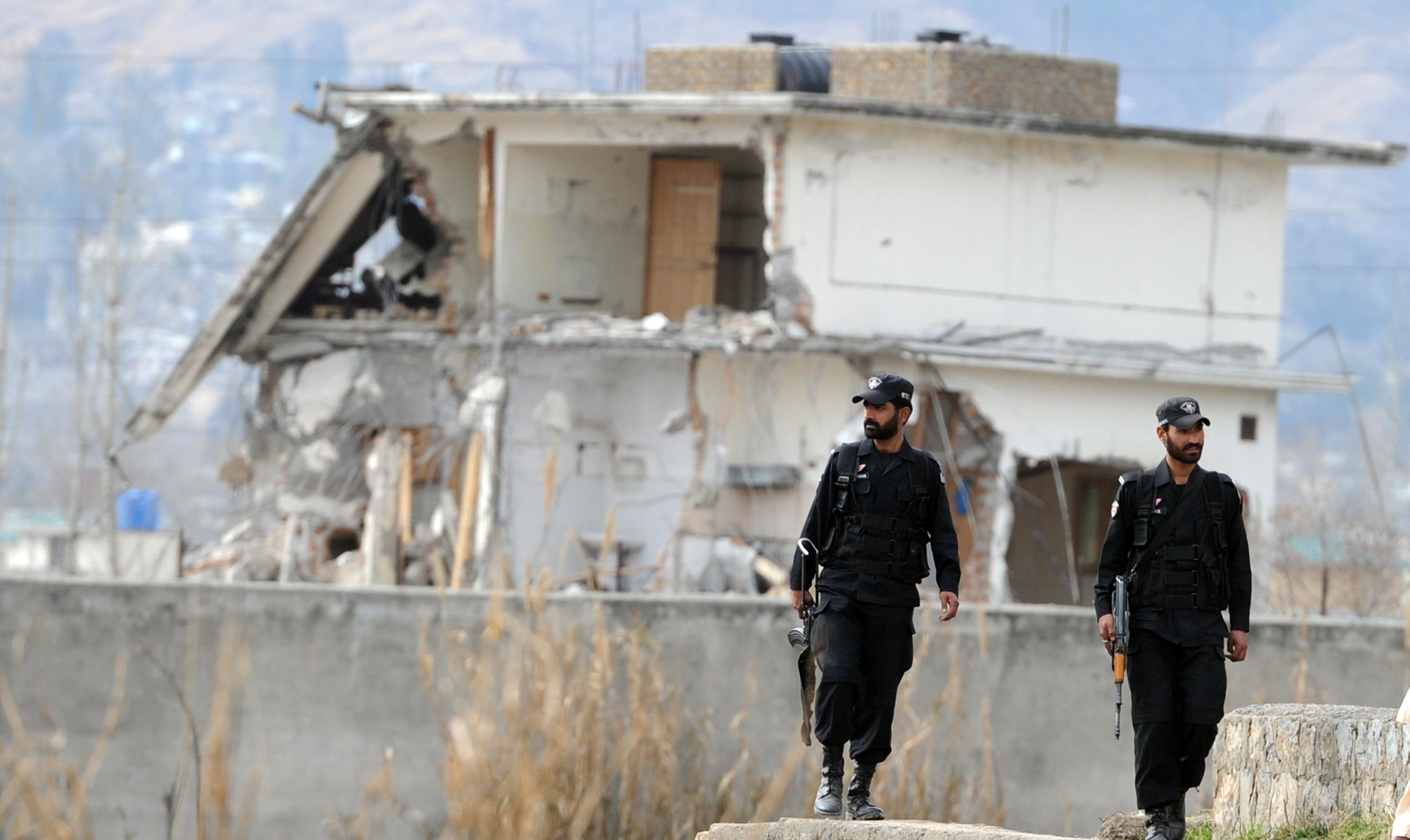In an explosive new story for the London Review of Books, veteran investigative journalist Seymour Hersh asserts that the Obama administration has lied repeatedly and extensively about the circumstances and events that led to Osama bin Laden’s assassination on May 2, 2011. “The White House’s story might have been written by Lewis Carroll,” Hersh writes. But it’s hard to know how trustworthy Hersh’s piece is, since it mostly relies on the information of a single anonymous source—and because it doesn’t appear in Hersh’s usual venue for blockbuster investigative pieces, the New Yorker.
Citing interviews with “a retired senior intelligence official who was knowledgeable about the initial intelligence about bin Laden’s presence in Abbottabad” and American sources who “had access to corroborating information,” Hersh writes that the American government did not act alone in locating and killing Bin Laden, as it has consistently claimed. On the contrary, Hersh’s sources say that senior generals of Pakistan’s army and Inter-Services Intelligence agency (ISI)—Pakistan’s equivalent of the CIA—knew as early as 2006 that Bin Laden was in Abbottabad, and cooperated with the U.S. in the assassination. Specifically, the story says that top Pakistani Army Gen. Ashfaq Parvez Kayani and Gen. Ahmed Shuja Pasha, director general of the ISI, knew Bin Laden’s location and knew about the Abbottabad raid before it took place.
Among the report’s most explosive claims is that the U.S. did not find Bin Laden by tracking his couriers, as the government and most official accounts have reported. Instead, according to the Hersh report, the U.S. paid a $25 million reward to an unnamed former senior Pakistani intelligence officer who “betrayed the secret” of Bin Laden’s whereabouts. Hersh’s report says that this officer was relocated to Washington, D.C. and now works as a consultant for the CIA.
The story also claims that Bin Laden’s burial at sea never happened, that Bin Laden was an invalid when the SEALs raided the compound and killed him, and that there was no firefight at all during the SEAL raid. Additionally, Hersh’s account says that the ISI captured and set bin Laden up in Abbottabad in the first place, to use him as “leverage” in the country’s dealings with al-Qaida and the Taliban.
In the piece, Hersh provides a thrilling, if questionable, alternative account of how the U.S. learned about Bin Laden’s compound, of the raid itself, and of the internal political arguments that followed President Obama’s announcement of the assassination. First, rather than the CIA tracking Bin Laden’s network of couriers in an extended investigation, the Hersh story says that the Pakistani intelligence officer walked into the American embassy in Islamabad alone and offered information about Bin Laden’s whereabouts in August 2010, in exchange for the $25 million reward. The administration then sought from senior Pakistani officials reassurance and DNA proof that the man inside the compound was Bin Laden. There were then lengthy negotiations between the U.S. and the Pakistanis about the terms of the raid. Along with the money, the U.S. allegedly offered other diplomatic concessions if Pakistan both helped and stayed quiet about the mission:
A Pakistani with close ties to the senior leadership of the ISI told [Hersh] that ‘there was a deal with your top guys. We were very reluctant, but it had to be done – not because of personal enrichment, but because all of the American aid programmes would be cut off. Your guys said we will starve you out if you don’t [allow the raid], and the okay was given while [ISI Director General Ahmed Shuja] Pasha was in Washington. The deal was not only to keep the taps open, but Pasha was told there would be more goodies for us.’ The Pakistani said that Pasha’s visit also resulted in a commitment from the US to give Pakistan ‘a freer hand’ in Afghanistan as it began its military draw-down there. ‘And so our top dogs justified the deal by saying this is for our country.’
Hersh is a legendary investigatory journalist—he broke two of the biggest stories about American war atrocities of the last 50 years with his account of the 1968 My Lai massacre during the Vietnam War and with his 2004 revelation of the U.S. Army abuse of detainees at Abu Ghraib prison. He has voiced skepticism about the official account of the Bin Laden assassination, as well as an account of it by Nicholas Schmidle in Hersh’s usual home, the New Yorker. Last year, the New Republic asked New Yorker editor David Remnick about Hersh’s doubts about the Bin Laden raid. Remnick defended his magazine’s story, while also noting his respect for Hersh. Here’s the relevant exchange from the New Republic:
[Isaac Chotiner]: Speaking of Hersh, he claims that the U.S. government’s story of the Osama bin Laden raid is bullshit. What do you say to that given that your magazine ran a piece that relied heavily on government sources?
[David Remnick]: I thoroughly stand by the story we published.
IC: And his comments?
DR: Look, there is a difference between what people say loosely or in speeches and what we publish. All I can be in charge of is what we publish. I have enormous respect for him.
IC: Hersh wrote a piece a few months back hinting that the rebels were the ones who used chemical weapons in Syria. Why did that run in the London Review of Books and not The New Yorker?
DR: Or The Washington Post. I have worked with Sy on many dozens of pieces and am proud of that work. And a lot of those pieces had the potential to break a lot of crockery. I was willing, and am still willing, to go to the wall with investigative journalism. But if he and I disagree, it is not an easy thing. I hope we will work again together. I hope you will print this: I wish him all the best, and I think he is one of the great journalists of our age.
